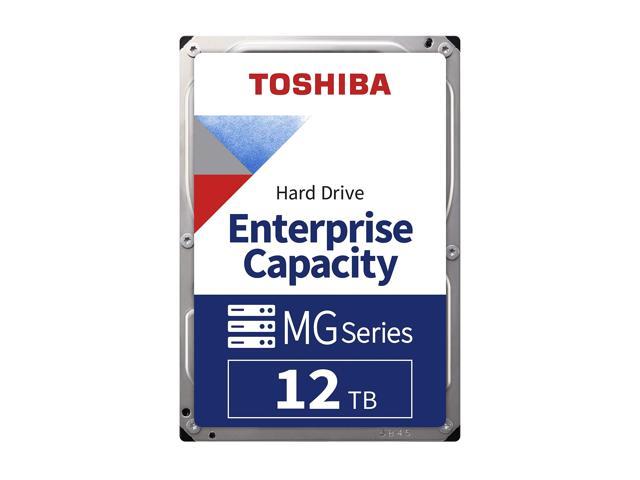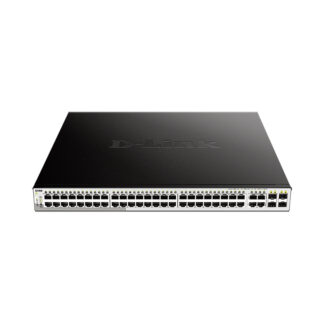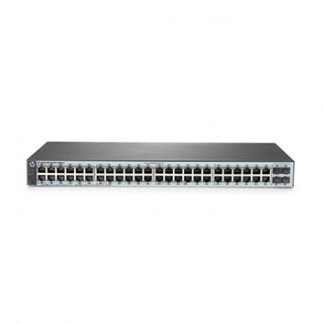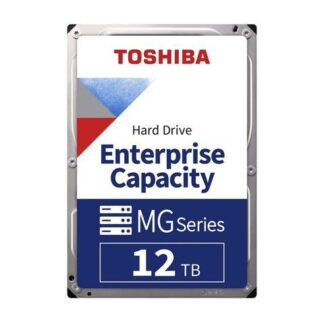Description
MG07ACA Series
Using the world’s first 9-disk Helium-sealed design, the MG07ACA Enterprise Capacity SATA HDD provides up to 14TB of conventional magnetic recording (CMR) capacity and 7,200 rpm performance. The industry-standard 3.5-inch form-factor integrates easily into cloud-scale storage infrastructure, business-critical servers and storage, and File and Object storage solutions.
The MG07ACA Series utilizes Toshiba precision laser welding technology to seal helium inside the 9-disk mechanics for the life of the drive. The helium-sealed design reduces aerodynamic drag to deliver a lower operational power profile, helping to achieve TCO objectives for cloud-scale and software-defined data center infrastructure.
The massive 14TB and 12TB model capacity is delivered using proven CMR/PRM recording technologies providing optimum compatibility and data reliability. Equipped with SATA 6.0 Gbit/s interface, the MG07ACA models integrate easily into standard 3.5-inch SATA drive bays to help reduce the footprint and operational burden of cloud-scale storage infrastructure, and business critical servers and storage systems.
![]()
Product Specification
| Form Factor | 3.5-inch | |
|---|---|---|
| Interface | SATA 6 Gbit/s | |
| Buffer Size | 256 MiB | |
| Rotation Speed | 7200 rpm | |
| Data Transfer Speed ( Sustained ) ( Typ. ) |
14 TB | 248 MiB/s |
| 12 TB | 242 MiB/s | |
| Power Consumption ( Idle – A ) ( Typ. ) |
14 TB | 4.53 W |
| 12 TB | 4.25 W | |
| MTTF | 2 500 000 h | |
| Weight ( Max ) | 720 g | |
Key Features
- 14TB and 12TB capacity models
- Innovative 9-disk helium-sealed design for superior storage density
- Industry Standard 3.5-inch 26.1 mm Form Factor
- 7,200 rpm Performance
- SATA 6.0 Gbit/s Interface
- Low operational power profile, providing excellent power efficiency (W/TB) for better TCO
- 550 Total TB Transferred per Year Workload Rating
-
Rotational Vibration (RV) Sensors
- 512e or 4Kn Advanced Format Sector Technology; (512e Model) Includes Toshiba Persistent Write Cache Technology for Data-Loss Protection in Sudden Power-Loss Events
- Sanitize Instant Erase (SIE) and Self-Encrypting Drive(SED) option model available
Applications
- Cloud-scale Storage Infrastructure
- Software-defined data center infrastructure
- File- and Object-based storage infrastructure
- Mid-line / Nearline Business Critical Workloads
- Tier 2 Business-Critical Servers and Storage Systems
Warranty 3 Years
Lineup
| Capacity | Format | Type | Model Number |
|---|---|---|---|
| 14 TB | 4Kn | Standard | MG07ACA14TA |
| 14 TB | 4Kn | SIE | MG07ACA14TAY |
| 14 TB | 512e | Standard | MG07ACA14TE |
| 14 TB | 512e | SIE | MG07ACA14TEY |
| 14 TB | 512e | SED | MG07ACP14TE |
| 12 TB | 4Kn | Standard | MG07ACA12TA |
| 12 TB | 4Kn | SIE | MG07ACA12TAY |
| 12 TB | 512e | Standard | MG07ACA12TE |
| 12 TB | 512e | SIE | MG07ACA12TEY |
| 12 TB | 512e | SED | MG07ACP12TE |
- World’s First Source : Toshiba Electronic Devices & Storage Corporation, as of December 8,2017.
- Definition of capacity: A terabyte (TB) is 1,000,000,000,000 bytes. A computer operating system, however, reports storage capacity using powers of 2 for the definition of 1TB = 240 = 1,099,511,627,776 bytes and therefore shows less storage capacity. Available storage capacity (including examples of various media files) will vary based on file size, formatting, settings, software and operating system and/or pre-installed software applications, or media content. Actual formatted capacity may vary.
- A mebibyte (MiB) means 220, or 1,048,576 bytes.
- MTTF (Mean Time to Failure) is not a guarantee or estimate of product life; it is a statistical value related to mean failure rates for a large number of products which may not accurately reflect actual operation. Actual operating life of the product may be different from the MTTF.
- Read and write speed may vary depending on the host device, read and write conditions, and file size.
- SIE: Sanitize Instant Erase. SIE is a function to invalidate the data recorded on the magnetic disks at a blink.
- “3.5-inch” mean the form factor of HDDs. They do not indicate drive’s physical size.
- Workload is a measure of the data throughput of the year, and it is defined as the amount of data written, read or verified by commands from the host system.








Reviews
There are no reviews yet.